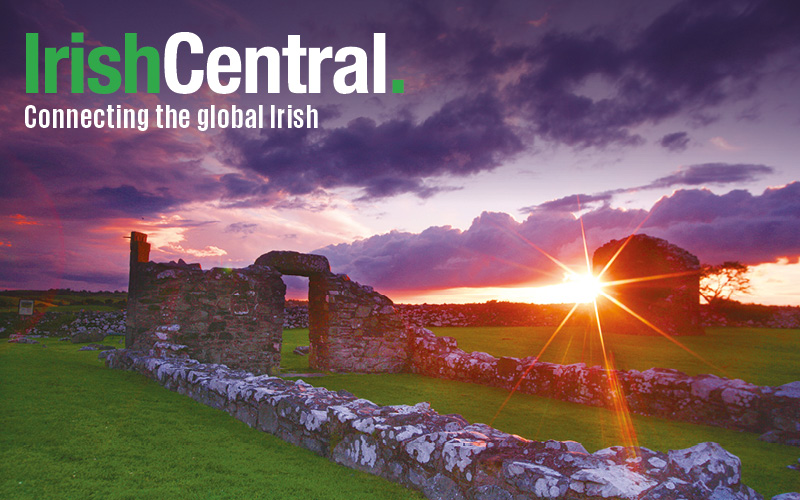Festivals have long been part of Irish life: the Puck Fair in Killorgin, for example, has been going on for hundreds of years, while others such as the Fleadh Ceol and the Matchmaking Festival in Lisdoonvarna have been taking place for decades.
But in recent years, there has been a noticeable increase in the number of music festivals in Ireland. About a decade ago, you could have counted the number of really good Irish music festivals with one hand. Today, there are numerous music festivals all over the country. And it's not just the tastes of indie and rock fans that have been catered for - although these are indeed spoiled for choice - all kinds of genres now have festivals in Ireland.
Electric Picnic September 4-6 Stradbally Co. Laois
This festival, which began in 2004, years, bills itself as the "boutique music festival." Electric Picnic is a real music lover's festival. More particularly, it's for music fans that are getting that little bit older, but who aren't prepared to eat nothing but half-cooked burgers for three days. This festival may attract an older crowd than its main rival, Oxegen (see below), but it's certainly every bit of fun: there have been some terrific acts that have played here over the years, such as Wilco and Arcade Fire.
The location, Stradbally in County Laois - less than a two hour drive from Dublin - is an almost ideal festival venue, replete with lush green, natural amphitheatre-type fields. The lineup for this year is particulaly strong: MGMT, The Flaming Lips, Basement Jax, Echo and the Bunneymen, and Lisa Hannigan are among the highlights.
This festival is also noteworthy for the pretty good camping arrangements (as festivals go) and the wide variety of food and drinks available, ideal for the more discerning festival-goer - think vegetarian wraps and mojitos, not soggy French fries and warm beer. Electric Picnic is also commendable for being one of the best organized - and certainly more eco-friendly - festivals in the country.
www.electricpicnic.ie
Oxegen July 10-12, Punchestown, County Kildare
Although this festival typically attracts a younger crowd than Electric Picnic, it always seems to boast a very strong line up. In recent years, it has attracted some negative publicity for excessive teenage drinking, and for alleged sexual assaults, although 2008's festival apparently went much smoother by comparison. Last year, this festival was extended to three days: acts who played headlined included MGMT, Interpol and Kings of Leon It takes place in the Punchestown Race Track, which is about a 30 minute drive from Dublin City Centre. (The festival organizers run plenty of bus services to and from Dublin.)
www.oxegen.ie
Fleadh Ceol, August 21-23 Tullamore County Offaly
A fleadh (pronounced 'fla') is the Irish word for festival; ceol (ce-ole) is the Irish for music. But the Fleadh Ceol, which takes places in the County Offaly town of Tullamore, is as much a competition as it is a festival of Irish traditional music and dance. Individuals and groups - mainly from Ireland, the U.K and the U.S - compete against one another in a range of different categories, playing instruments such as the fiddle, accordion, flute, concertina, uilleann pipes (the national bagpipes of Ireland), harp, mouth organ, banjo and mandolin. It would be hard to get a more authentic experience of Irish culture than the Fleadh Ceol.
Wexford Opera Festival, October 15 - November 1
Wexford, in the 'sunny south east' of the country (well, it's sunny there by Irish standards at least...) is one of the most popular counties with tourists and this opera festival is a popular attraction. Last year saw this festival take place in a new opera house, which by all accounts has been a tremendous success. Ireland's first custom-built Opera House, it is over four times larger than the previous Theatre Royal. Comprising a main auditorium, seating 769 people for opera performances. This year's program has already been announced: Il Cappello di Paglia di Firenze by Nino Rota (who scored the Godfather trilogy), The Ghosts of Versailles by John Corigliano, and Donizetti's Maria Padilla.
http://wexfordopera.com
Cork Jazz Festival October 23-26
Although 'jazz' mightn't be synonymous with 'Ireland', this is one of Ireland's best established music festivals, first taking place in 1978. Cork is the second largest city in the Republic of Ireland after Dublin, and its inhabitants tend to be an extremely proud of their home - with considerably justification. Corkonians resent snooty Dubliners who think of their city as being a provincial backwater- and this jazz festival, one of the city's best known tourist draws, is proof of why they are right.
www.corkjazzfestival.com
Puckfair Killorglin August 10-12
The idea is strange, yet simple: every year, a group of people from Killorgin, a town in County Kerry, go to the nearby mountains, the MacGillycuddy's Reeks, to capture a wild goat. The captured goat is then crowned "Kind Puck" in the town by the Queen of the Fair, a local schoolgirl. Then the party begins - for three days, pubs are permitted to say open till 3 am, and it is estimated that around 100,000 people visit the town over the three days. The goat is kept in a cage in the town, and is later released back into the wild.
There are also hours of free family entertainment including parades, fireworks, cultured street entertainment as well as day and night concerts, as well as a cattle fair and a horse fair. This is certainly one of the more unusual festivals in Ireland, but it's also the oldest. No one is really sure how this fair started, although there are a number of different theories. There are several versions of the origins of King Puck. One labels Puck a Paul Revere of sorts. The story involves English leader Oliver Cromwell and his "Roundheads," while pillaging the Irish countryside, frightened a herd of goats, one broke away and entered the town of Killorglin looking exhausted, which warned the townsfolk that danger was on its way.
The other story claims that the annual Killorglin fair had been a toll fair (this is back in the early 1800s), but then it was ruled illegal to levy tolls at cattle, sheep or horse fairs. - but this did not include goats, and on August 10, 1808, with the help of a barrister named Daniel O'Connell, a fair was held in Killorglin and a goat was paraded on stage to prove that it was indeed a legal goat fair. - so the town got a fair and a king.
It is also possible that this festival began in pre-Christian times, to celebrate a successful August harvest. In pagan times, the male goat, or "Puck" was celebrated as a symbol of fertility, like the pagan god Pan.
Matchmaking Festival Lisdoonvarna County Clare September-October 2009
This festival takes places over six weeks during the month of the September and the start of October, in the gorgeous County Clare town of Lisdoonvarna. Historically, this festival helped young Irish men - many of whom would have been working as farmers in isolated rural areas - meet young Irish women. The town even has an official Matchmaker: Willie Daly, who carries on an old family tradition. Today, this festival is a little less about matchmaking and more about music, dance, and good old-fashioned debauchery, Irish style.
www.matchmakerireland.com/
The AIB Street Performance World Championship Dublin City June 18-21
Dublin City Center usually has some really good street performers, most famously on the main shopping street, Grafton Street, which is especially famous for its street musicians. But the street performance world championships, which take place in June in Merrion Square, are truly a spectacle to behold. Last year a duo called The English Gents astounded their audience with remarkable feats of strength and agility, using props such as cups of tea and newspapers in a most imaginative way.
Wren's Day Carrigaline 26 December 2008
The big attraction in Carrigaline, County Cork, on St Stephen's Day, December 26th is the annual Wren Boys Street Festival. This is an old Irish tradition, which has largely been forgotten in most other parts of the country: the Celtic myth was that the Robin, which represents the old year, kills the Wren, which represents the new year. "Wren Boys" would go hunting the bird and then go from house to house, singing and dancing for money. In this festival, traditional musicians, singers and dancers in bright colorful costumes and straw suits create great excitement as they entertain the crowds.
www.owenabue-valley.net
There is also a Wren's Day in the West Kerry town of Dingle, where crowds of people take to the streets of Dingle dressed in straw costumes and fancy dress parading the streets accompanied by music dance and song. The different Wrens go from pub to pub playing music while they collect donations for worthy charities.
Smithwick's Cat Laughs Festival Kilkenny May 28-June 1
In recent years, Irish comedy has become increasingly popular, and this comedy festival has established itself as one of the leading comedy festivals in the U.K and Ireland. It takes place in Kilkenny, a very charming midlands town about two hours from Dublin. (Its inhabitants insist on calling it a city because it has a cathedral, much to the amusement of the rest of country.) But whether you want to call it a town and city, Kilkenny is a great place to spend a few days - make sure to visit its Norman castle - and this comedy festival is probably the best time of the year to do so.
This year's line-up features If you do decide to go to this festival, try to book accommodation early on: most the hotels and Bed & Breakfasts sell out by the time the festival begins. There are also camping facilities provided, if you are prepared to rough it a little.
www.thecatlaughs.com
Galway Arts Festival July 13-26
Galway can lay genuine claim to being Ireland's cultural capital (although some Dubliners may well reject this claim) - so a trip to this western city no matter what time of the year will always be a very cultural experience. But these two weeks in July are especially exciting: part of Galway's appeal is that its city centre is small enough where pretty much everything is within walking distance. Life moves at a more laid back pace than in Dublin, and Galway manages to retain the feeling of how an Irish city, in part, might have looked 30 or 40 years ago, while still looking thoroughly modern.




Comments